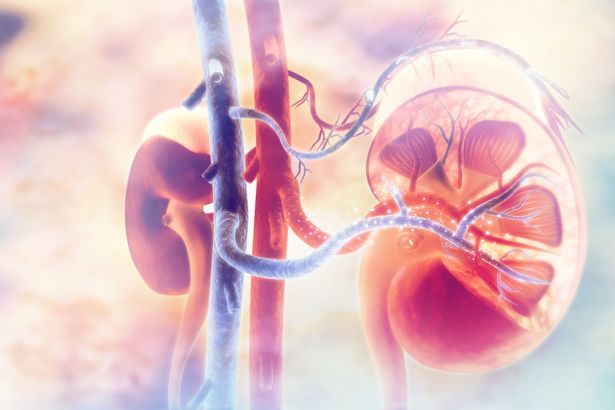
This test measures the total carbon dioxide in your blood. It checks for an electrolyte or acid-base (pH) imbalance and is almost always done along with other electrolytes to show whether your sodium, potassium, chloride, and bicarbonate levels are in balance. It is often ordered as part of a renal profile, a collection of tests that help investigate the kidneys.
What is being tested?
When we breathe, we take oxygen from the air into the body, and remove carbon dioxide (CO2), a waste gas produced by cells. Most of the CO2 in the blood is converted to bicarbonate. The bicarbonate blood test is also known as “total CO2” as it measures the CO2 dissolved in the blood as bicarbonate.
Bicarbonate is an electrolyte which is dissolved in the blood. It is important in maintaining the pH of the blood within the normal range.
The bicarbonate test gives your doctor a rough estimation of your body's acid-base balance. This is usually sufficient, but measurements of gases dissolved in the blood may be required if more information is needed. Bicarbonateis usually measured along with other electrolytes such as sodium, potassium, and possibly chloride. This gives your doctor more information about the acid-base and electrolyte status of the blood.
How is it used?
Bicarbonate is almost always requested as part of an electrolyte panel/profile. In the first instance, the bicarbonate result informs your doctor about the likely acid-base status of the blood. When taken into consideration with the other electrolyte results, it is often possible to diagnose more specific types of acid-base balance disturbance.
When is it requested?
Some of the most common reasons to measure bicarbonate include the following:
What does the result mean?
Bicarbonate results above the reference interval usually mean that your body is either losing too much acid, the lungs are failing to get rid of unwanted CO2, or that the kidneys are not getting rid of excess bicarbonate. Common causes of a high bicarbonate include:
Bicarbonate results that are below the reference interval usually indicate the build-up of acid in the blood (acidosis). Common causes of a low bicarbonate include:
Is there anything else I should know?
Some drugs may increase bicarbonate levels such as diuretics e.g. frusemide or Lasix. Often other electrolytes will also be low e.g. sodium, potassium. Similarly some drugs may cause slightly low bicarbonate levels. Your doctor can advise if this appears to be a problem.
Occasionally a low bicarbonate may occur due to a laboratory error. This is most common if there has been a prolonged delay between collecting the sample and analysis in the laboratory, or if the specimen tube was uncapped before being analysed. Your doctor can discuss any such cases with the laboratory directly.
Common questions
If your bicarbonate is high or low, your doctor will identify and treat the underlying cause. For example, high bicarbonate may be caused by emphysema, which may be treated with oxygen therapy and medications, or by severe diarrhoea or vomiting (which would be treated by treating the reason for the diarrhoea or vomiting). Low bicarbonate may be caused by diabetic ketoacidosis, which can be treated in part by treating the blood sugar problem that led to the ketoacidosis or kidney diseases.
Oxygen, both dissolved and bound to haemoglobin, is vital to the functioning of all cells in the body. Smokers and people who have been exposed to carbon monoxide may have measurable amounts of it in their blood. Carbon monoxide also binds to haemoglobin, diminishing your body's ability to carry oxygen. Nitrogen, from air, is dissolved in blood at low concentrations but is usually not of any significance.
Blood gas tests, in which blood is drawn from an artery instead of a vein, can give your doctor a more accurate assessment of the body's pH (acid/base status) and indicate whether your body is taking in enough oxygen and getting rid of enough CO2.
More information
What is Pathology Tests Explained?
Pathology Tests Explained (PTEx) is a not-for profit group managed by a consortium of Australasian medical and scientific organisations.
With up-to-date, evidence-based information about pathology tests it is a leading trusted source for consumers.
Information is prepared and reviewed by practising pathologists and scientists and is entirely free of any commercial influence.